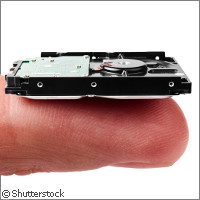Multi-million-euro commitment to nanomedicine
The EU ERA-NET initiative EuroNanoMed will support eight transnational research projects with EUR 17 million based on the result of its first call for proposals, which was launched in May 2009 to promote collaborative and interdisciplinary research into nanomedicine - the application of nanotechnology to health. EuroNanoMed's first call for proposals focused on the three main subfields of nanomedicine: diagnostics, targeted delivery, and regenerative medicine. A second call will be launched in 2010. The two calls have a joint budget of between EUR 40 million and EUR 60 million; the allocation of funds for project proposals was based on scientific, technical, translational and/or commercial potential criteria. 'This is a unique commitment towards the creation of the European Research Area (ERA),' said Dr Pierre-Noel Lirsac, EuroNanoMed's coordinator. 'No other national or European tool has the same flexibility to support transnational RTD projects with the same efficiency.' EuroNanoMed was set up to support research into nanomedicine through EU-wide research and development (R&D) projects. Its partners are from 18 countries and include public health institutions, universities and enterprise and industry. Its aim is to foster competitiveness by pushing forward innovative knowledge in the area through national and transnational research projects in the field of nanomedicine. 'The projects address very significant medical needs with high-quality science and technology and will develop an industrial vision for new and effective patient applications,' said Professor Frank Barry, chair of the international review panel for EuroNanoMed. He emphasised the high quality of the projects selected by EuroNanoMed, as well as their international competitiveness and innovative potential. EuroNanoMed aims to bridge the gap between industry and academia in nanomedicine. By creating multidisciplinary research projects that bring together players from industry and academia, the initiative will improve continuity between research results and their application in industry for nanomedicine technologies. Modern science and medicine have had great success in helping to eradicate many of the diseases that terrorised humanity for centuries including cholera, smallpox, diphtheria, typhoid and polio, but it is now fighting the other serious threats of our time such as Alzheimer's, diabetes, cancer and cardiovascular disease. Nanomedicine will lead to a much deeper understanding of how the human body works at a molecular and nanometric level by using a range of nanotechniques such as electronic biosensors and molecular nanotechnologies to detect illnesses or changes in even a single cell of the body. 'It is encouraging that regenerative medicine, which was previously viewed as an emerging technology, is now competing with more mature areas,' said Associate Professor Karin Forsberg Nilsson, chair of the EuroNanoMed Network Steering Committee.



